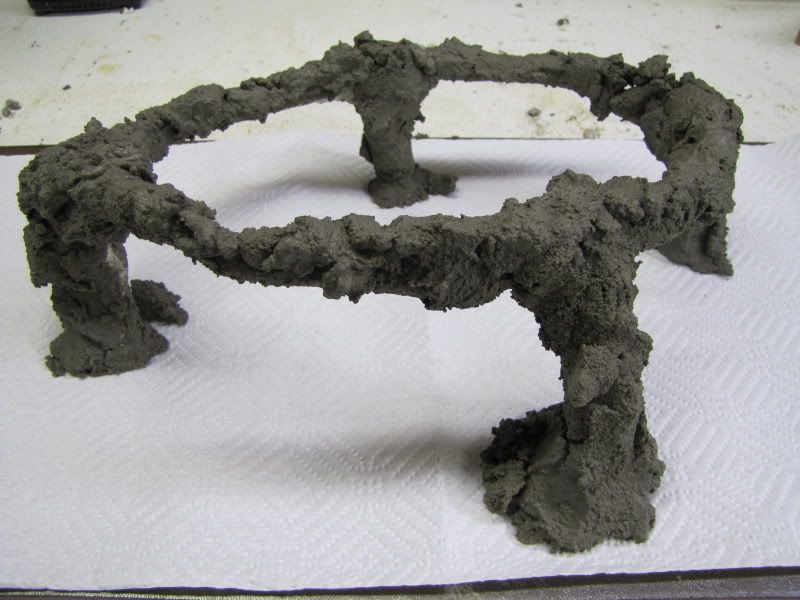Peter Wilkens was a very respected innovator of this hobby and I read all his works and got some ideas from him. Robert Straughn was another one and I would call him my mentor.
A lot of innovations came about before the internet when we had to experiment to learn something rather than use Google. Then we took the result of our experiment and tried it on our animals and got first hand results with no conflicting views, criticisms or opinions that unfortunately, many times, are the result of rumor or second or third hand knowledge. We personally knew the outcome of our experiment and used that knowledge for the betterment of our hobby and creatures in our care.
For instance, I know exactly how to cure ich, usually in a day. I know exactly how to keep my fish from getting it. I know how to keep hair algae off my corals and how to feed a Moorish Idol or mandarin.
I know these things because I have experimented numerous times (not once or twice) and after the initial failures, I knew exactly what did "not" work. You want to know what does not work as well as what does work. This knowledge comes from decades of experiments, not weeks. When something goes wrong, the first thing most people will say is to change the water. Does that ever work?
In certain situations, yes, like if a manta ray died in your tank or Lindsay Lohan got sick in it. Then I would change the water.
I do "not" know much about phosphates, Taylor Swift, silicates, nitrates, DOCs or an entire plethora of things we normally associate with this hobby. I want to know more but I do know enough about those things to know what is and is not harmful. If I believed all I read, I would presume that almost any amount of nitrate or phosphate was bad and that is the way Noobs will perceive it as that is what is written.
That is IMO wrong. If I believe all I read I would think that quarantining is the "only " way to go. That is wrong. If I were to read about UG filters I would believe they were all bad and I would learn a new phrase, Nitrate factory. But that is wrong. I would read that cyano is bad and that I need to add some chemical immediately to "Cure" it. That is wrong.
I may read that a tang could not live in a fifty gallon tank. Wrong again (but a larger tank would be so much better)
I used to read that a DSB was the end all and be all of salt tanks. That is wrong. I have read many times of the hazards of using NSW. Wrong again.
A Noob may read about the successes of a hobbiest because he can keep his fish alive for 5 years. Most of our fish live 15 or 20 years and the only ones with that short of a lifespan are in the sea horse family or small gobies and cardinals. So that is wrong. I love it when someone writes about what he attributes his success to. And it is usually garlic, cleaner shrimp or a the newest food on the market. Then you find out his tank is one year old or worse yet, he started it last Tuesday. I do know that I am Pig headed, stubborn, bald and a host of other things that I am uncomfortable calling myself, but I am some of them, maybe most of them. I rarely give advice as I am at the point in my life where I don't care to argue. I get PMs every day where I will try to answer any question, person to person without the arguments that you will sometimes get in an open forum like this. Right now there are 6,000 people saying, he is nuts, Bald, old and nuts, you must quarantine, tangs need a 1,000 gallon tank, garlic is the only way to go and Justin Bieber can sing as well as Elvis Presley. Yes, I know that you know, that I know, who you are. I have a long thread on this forum about my practices and what I do. Many people dis agree with me and that is fine, it is what makes the world go around and I don't profess to be an expert on anything. Except reverse undergravel filters as I probably have more experience with than anyone on the planet, so yes, I am an expert on them. Those and the Majano Wand as I invented the thing and hold the patent. But everything else is up for grabs.
There are certainly plenty of tanks on this and other forums that look much better than mine and I am jealous of many of them. There are also certainly plenty of smarter people than me here.
I am in awe of some of the creative works that I see here and am so glad that I picked such a rewarding hobby. I mean, who's better than us? We get to keep such beautiful, delicate, interesting creatures alive and we do it in so many different ways.
 May actually get my interests going here again~
May actually get my interests going here again~



